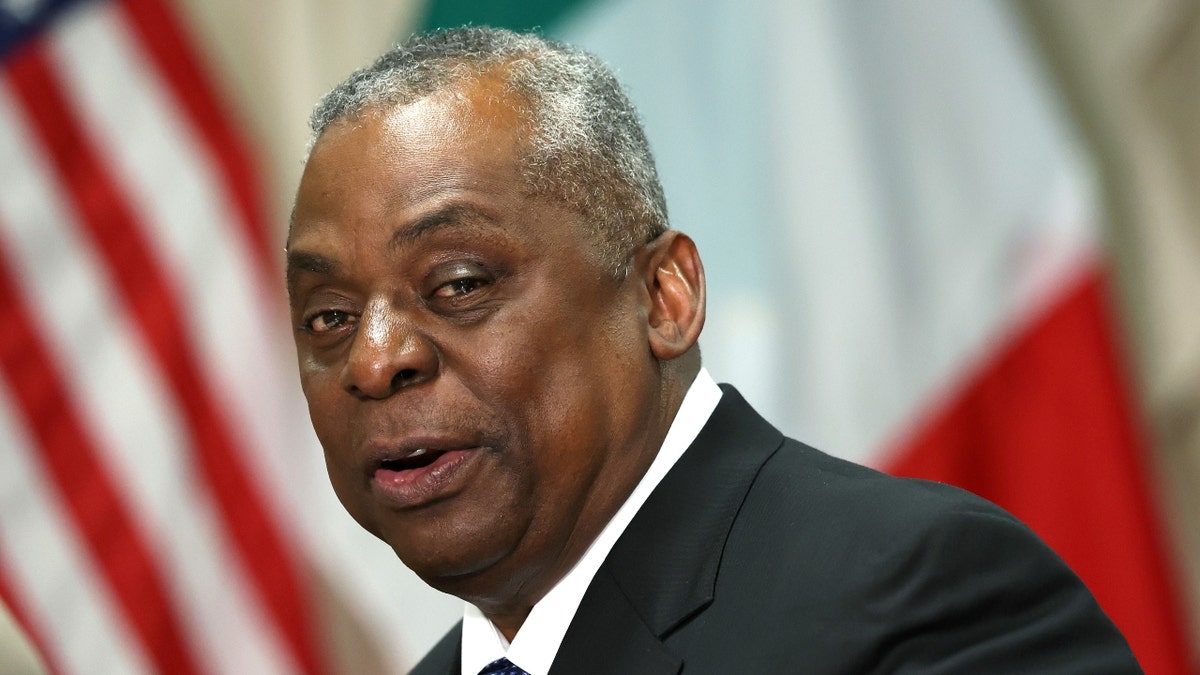
291
Biden not informed of Secretary Austin’s cancer diagnosis until weeks after, same day as public: ‘Not optimal’
The Associated Press contributed to this report.

Read this article for free!
Plus get unlimited access to thousands of articles, videos and more with your free account!
Please enter a valid email address.
By entering your email, you are agreeing to Fox News Terms of Service and Privacy Policy, which includes our Notice of Financial Incentive. To access the content, check your email and follow the instructions provided.
President Biden first learned of Defense Secretary Lloyd Austin’s prostate cancer on Tuesday, which was the same day as the public and a month after the diagnosis.
Walter Reed National Military Medical Center revealed Tuesday that Austin was diagnosed with prostate cancer in early December and underwent a prostatectomy on Dec. 22.
Per Walter Reed, the 70-year-old recovered uneventfully from his surgery and he returned the following morning. His prostate cancer was detected early and the prognosis is “excellent,” the hospital said.
During his hospitalization, Austin transferred authority to Deputy Secretary of Defense Kathleen Hicks and did not inform the White House. The Defense Department has for days said Austin was initially at Walter Reed for an “elective medical procedure” and not prostate surgery.
White House National Security Council spokesperson John Kirby said Tuesday that Biden was not informed of Austin’s hospitalization until last Thursday and only learned of the cancer diagnosis on Tuesday.
Asked whether Biden believed the time-lapse was acceptable, Kirby said it was “not optimal.”
“For a situation like this to go as long as it did without the commander in chief knowing about it or the national security adviser knowing about it or, frankly, other leaders at the Department of Defense, that’s not the way this is supposed to happen. The president understands that,” Kirby said.
White House Chief of Staff Jeff Zients released a memo earlier Tuesday to the president’s Cabinet with regard to protocols for delegating authority. It asks that every Cabinet agency submit in writing their current existing protocols for a delegation of authority they have in place for review to the White House Office of Cabinet Affairs and the chief of staff by Friday.
Zients’ memo also directs protocols that Cabinet agencies must undertake in the event of a delegation of authority, White House press secretary Karine Jean-Pierre said. The Pentagon has also launched its own review.
“We all recognize that this didn’t unfold the way it should have. On so many levels, not just the notification process up the chain of command but the transparency issue, we all recognize that. And I think we all want to make sure we learn from that,” Kirby said.
It was still not clear on Tuesday how this would affect Austin’s job, travel or other public engagements going forward.
The Pentagon issued a memo Monday on its own internal review and broadened the circle of leaders who would be informed of any delegation of authority by the defense secretary to ensure that in the future “proper and timely notification has been made to the President and White House and, as appropriate, the United States Congress and the American public.”
CLICK HERE TO GET FOX NEWS APP
Going forward, any time authority is transferred, a wider range of officials who will also be notified include the Pentagon’s general counsel, the chair and vice chair of the Joint Chiefs of Staff, the combatant commanders, service secretaries, the service chiefs of staff, the White House Situation Room, and the senior staff of the secretary and deputy secretary of defense.
The Associated Press contributed to this report.
